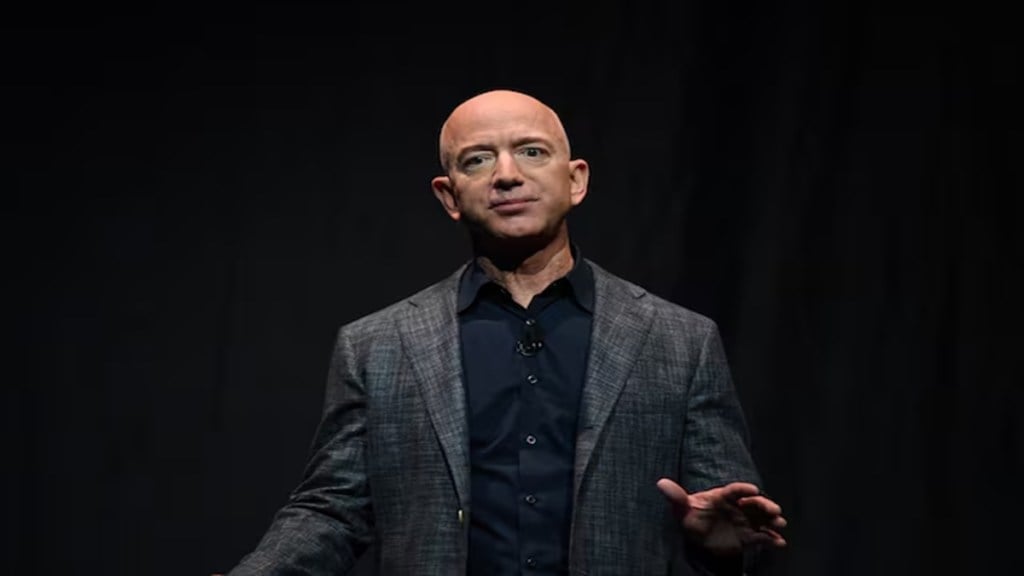Jeff Bezos is increasing his influence over the editorial direction of The Washington Post, announcing that the opinion pages will now focus on “defense of two pillars: personal liberties and free markets.”
In a memo to staff, Bezos wrote, “We’ll cover other topics too of course, but viewpoints opposing those pillars will be left to be published by others.”
Additionally, Bezos revealed that David Shipley, the opinion editor, is stepping down.
Bezos wrote, “I offered David Shipley, whom I greatly admire, the opportunity to lead this new chapter. I suggested to him that if the answer wasn’t ‘hell yes,’ then it had to be ‘no.’ After careful consideration, David decided to step away. This is a significant shift, it won’t be easy, and it will require 100% commitment — I respect his decision. We’ll be searching for a new Opinion Editor to own this new direction.”
Bezos has owned The Washington Post since 2013. During the first term of President Donald Trump, Bezos was often a target of the president’s criticism, especially as The Post published critical reporting on his administration. In response, Trump threatened antitrust action against Amazon, claiming the company lost out to Microsoft on a valuable government contract.
However, Bezos has since expressed praise for the current president. Amazon also donated $1 million to Trump’s inaugural fund. Before the 2020 election, Bezos intervened to prevent the editorial board from endorsing a candidate, as it was likely to back Trump’s opponent, Kamala Harris.
In 2023, the Biden-era Federal Trade Commission and various state attorneys general filed an antitrust lawsuit against Amazon, with a trial scheduled for October 2026. Bezos’ recent shift in editorial strategy appears to align with his company’s legal battles, suggesting that The Post editorial pages will now advocate for less government intervention and regulation.
NYTimes quotes, in a note to opinion staff members, Mr. Shipley said that he decided to step down “after reflection on how I can best move forward in the profession I love.”
“I will always be thankful for the opportunity I was given to work alongside a team of opinion journalists whose commitment to strong, innovative, reported commentary inspired me every day,” Mr. Shipley wrote.
Bezos in his memo says, “We are going to be writing every day in support and defense of two pillars: personal liberties and free markets. We’ll cover other topics too of course, but viewpoints opposing those pillars will be left to be published by others.”
I shared this note with the Washington Post team this morning:
— Jeff Bezos (@JeffBezos) February 26, 2025
I’m writing to let you know about a change coming to our opinion pages.
We are going to be writing every day in support and defense of two pillars: personal liberties and free markets. We’ll cover other topics too…
“There was a time when a newspaper, especially one that was a local monopoly, might have seen it as a service to bring to the reader’s doorstep every morning a broad-based opinion section that sought to cover all views. Today, the internet does that job.”
Bezos added, “I am of America and for America, and proud to be so. Our country did not get here by being typical. And a big part of America’s success has been freedom in the economic realm and everywhere else. Freedom is ethical — it minimizes coercion — and practical — it drives creativity, invention, and prosperity.”
This change will only affect the opinion section, not the news side, but it has already raised concerns among some of the newspaper’s staff.
Jeff Stein, chief economics reporter for The Post, expressed his concerns on X, stating, “Massive encroachment by Jeff Bezos into The Washington Post’s opinion section today – makes clear dissenting views will not be published or tolerated there. I still have not felt encroachment on my journalism on the news side of coverage, but if Bezos tries interfering with the news side I will be quitting immediately and letting you know.”
Bezos’ move follows a similar trend set by another billionaire media owner, Patrick Soon-Shiong, who controls the Los Angeles Times. Soon-Shiong has also sought to assert more control over the opinion pages, a move that led to the resignation of the editorial editor and several others.

